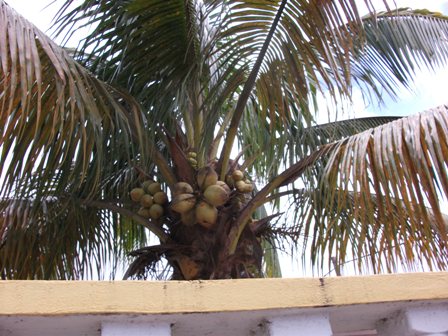
Traditionally especially in tropical countries it is an accepted body care program to oil the body once or even twice a day. Usually it was coconut oil; made at home from coconuts growing in the area.
The benefits of this are many but one recent mind blowing study has shown a benefit most people do not think about.
Universities from Nebraska; Illinois; China and Brazil working in cooperation with The US Department of Agriculture have found that Coconut Oil is just as repellent as DEET.
DEET is an insect repellent that is used in products to prevent bites from insects such as mosquitoes, biting flies, fleas and small flying insects.
DEET has some serious side effects.
Manufacturers and governments still say it is safe to use but the people who use it a lot are disagreeing.
Children are affected the most as usual – The Canadian Government does not recommend using DEET on a daily basis for children younger than 12 years old for more than a month. For infants younger than 6 months old, they recommend not using it all.
The FDA does not recomend the use of DEET for children under 2 years old.
Mental retardation, muscular hypotonia, hearing loss, and coarctation of the aorta have been reported among infants whose mothers were exposed to DEET during pregnancy; however, a direct relationship between the use of DEET and birth defects has not been demonstrated.
They are still looking at the connections of the use of DEET to Gulf War Syndrome. US Veterans who used DEET-containing insect repellents showed signs of arthro-myo-neuropathy, a neurotoxic syndrome with symptoms including joint and muscle pain, fatigue after exertion, and tingling or numbing of the hands, arms, feet, and legs.
In 1982 workers at The National Everglades Park in Florida were concerned by the effects they were having from sustained use of DEET and they requested the National Park Service initiate a health hazard evaluation to evaluate occupational exposure to DEET among workers. It was found that more highly exposed workers had significantly higher prevalence of insomnia, muscle cramping, symptoms of mood disturbances,skin rash or blisters, and difficulty starting or stopping the urinary stream.
Until 1989, the standard-issue insect repellent used by the U. S. military contained 75% DEET, but concerns about its toxicity led to a search for new formulations. The 3M Company therefore developed a slow-release product containing only 35% DEET, which is the repellent currently used by military personnel
In the 1990’s a ban on any DEET product above 30% was put into place but it was negated by the courts and the companies who stood to make millions from the product.
The use of DEET has continued because vector-borne diseases account for 17% of all infectious diseases resulting in 700,000 human deaths annually. Repellents are a primary tool for reducing the impact of biting insects on humans and animals.
Universities have done multiple studies to find alternatives to DEET. Studies increased when they found mosquitoes were breeding immunity to the most powerful DEET concoction.
Lemon Eucalyptus is one natural product they found that compared to DEET in effectiveness but we will talk about that later.
In a cooperative study released in September 2018 that included U.S. Department of Agriculture, University of University of Kentucky, South China Agricultural University, Rutgers University, Center for Medical, Agricultural and Veterinary Entomology and the Universidade Federal de Goiás of Brazil they found that fatty acids derived from coconut oil are inexpensive and highly efficacious repellant compounds.
What is mind blowing is these coconut fatty acids are active against a wide array of insects including biting flies, ticks, bed bugs AND mosquitoes. The medium-chain length fatty acids from C8:0 to C12:0 were found to exhibit the predominant repellent activity.
Repellency was stronger and with longer residual activity than that of DEET.
In laboratory bioassays, these fatty acids repelled biting flies and bed bugs for two weeks after application, and ticks for one week.
An aqueous starch-based formulation containing natural coconut fatty acids was also prepared and shown to protect pastured cattle from biting flies up to 96-hours in the hot summer, which, to their knowledge, is the longest protection provided by a natural repellent product studied to date.
This is huge.
There is already DEET in our waters and environment and repeated exposure seems to increase the side effects.
Science has shown we can use coconut based products instead.
This article is based on Natural Living Blog Article




